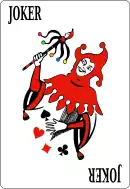heo
Irish
Middle English
Etymology 1
From Old English hēo, hīe. Probably a doublet of sche; see that entry for more.
Alternative forms
See also
Middle English personal pronouns
| nominative | accusative | dative | genitive | possessive | |||
|---|---|---|---|---|---|---|---|
| singular | 1st-person | I, ich, ik | me | min mi1 | min | ||
| 2nd-person | þou | þe | þin þi1 | þin | |||
| 3rd-person | m | he | him hine2 | him | his | his hisen | |
| f | sche, heo | hire heo |
hire | hire hires, hiren | |||
| n | hit | hit him2 | his, hit | — | |||
| dual3 | 1st-person | wit | unk | unker | |||
| 2nd-person | ȝit | inc | inker | ||||
| plural | 1st-person | we | us, ous | oure | oure oures, ouren | ||
| 2nd-person4 | ye | yow | your | your youres, youren | |||
| 3rd-person | inh. | he | hem he2 | hem | here | here heres, heren | |
| bor. | þei | þem, þeim | þeir | þeir þeires, þeiren | |||
1Used preconsonantally or before h.
2Early or dialectal.
3Dual pronouns are only sporadically found in Early Middle English; after that, they are replaced by plural forms. There are no third-person dual forms in Middle English.
4Sometimes used as a formal 2nd-person singular.
References
- “he, pron.(2).”, in MED Online, Ann Arbor, Mich.: University of Michigan, 2007, retrieved 10 June 2018.
Old English
Etymology
From Proto-West Germanic *hiju, from Proto-Germanic *hijō f (“this, this one”).
Pronunciation
- IPA(key): /xe͜oː/, [he͜oː]
Pronoun
hēo f (accusative hīe, genitive hire, dative hire)
- she
- c. 990, Wessex Gospels, John 20:15
- Hēo wēnde þæt hit sē wyrtweard wǣre.
- She thought it was the gardener.
- c. 996, Ælfric's Lives of Saints
- Þā hēo þis ġehīerde, þā smearcode hēo wiþ his weardes.
- When she heard this, she smiled in his direction.
- c. 990, Wessex Gospels, John 20:15
- it (when the thing being referred to is feminine)
- early 8th century, Beowulf, line 455
- Gǣþ ā wyrd swā hēo sċeal.
- Fate goes always as it must.
- c. 992, Ælfric, "St. Benedict, Abbot"
- Sē Dēofol wearp ānne stān tō þǣre bellan þæt hēo eall tōsprang.
- The Devil threw a rock at the bell so it broke into pieces.
- The Dialogues of Solomon and Saturn
- Sēo sunne biþ swā rēad on ǣfen for þon þe hēo lōcaþ ufan on helle.
- The sun is so red in the evening because it looks down on hell.
- early 8th century, Beowulf, line 455
Sikaiana
Noun
heo
- coral stone
Vietnamese

Heo
Pronunciation
- (Hà Nội) IPA(key): [hɛw˧˧]
- (Huế) IPA(key): [hɛw˧˧]
- (Hồ Chí Minh City) IPA(key): [hɛw˧˧]
This article is issued from Wiktionary. The text is licensed under Creative Commons - Attribution - Sharealike. Additional terms may apply for the media files.






